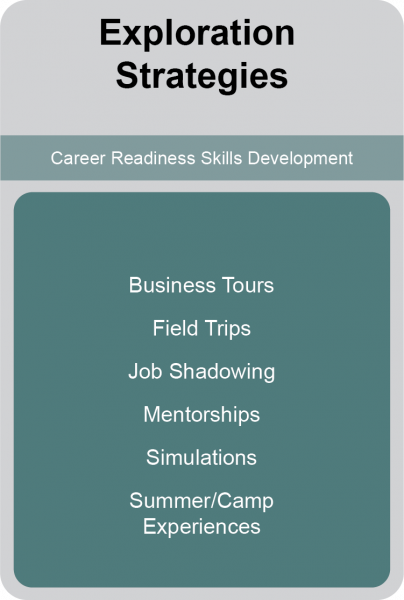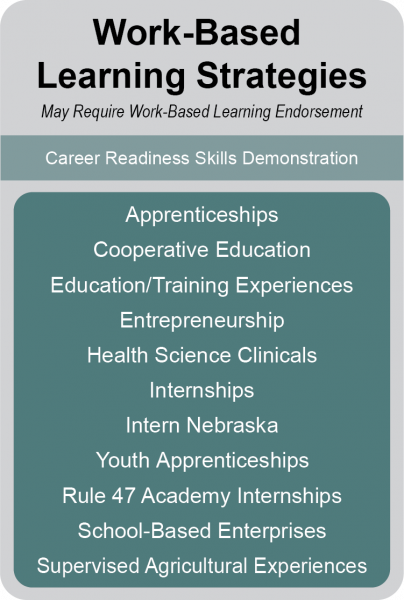The Nebraska Workplace Experiences Continuum
The Nebraska Workplace Experiences Continuum illustrates how Workplace Experiences become more focused as a student progresses through their education. Students gain a better understanding of their talents, strengths and interests; learn what postsecondary education is necessary for their career choice; and practice the career readiness and technical skills vital for entering the career of their choice. Postsecondary education is any education after high school, which includes 2- and 4-year colleges, on-the-job training, and short-term training to acquire needed skills.
The Nebraska Workplace Experiences Continuum is organized into three Phases:
Phase 1
Awareness Strategies acquaint students with the world of work and potential career options available. These are usually school-based instructional assignments, but instruction should also encourage students to explore careers in their local and regional communities. Students can also identify career readiness skills needed for work during these awareness activities.
Phase 2
Exploration Strategies deepen a student’s experience with workplaces through contextual settings. These strategies connect the student with workers and workplaces through carefully designed interactions. At this stage of the continuum, students begin to develop their career readiness skills.
Phase 3
Work-Based Learning Strategies provide supervised on-the-job experiences for students to continue to develop and demonstrate their academic, technical, and career readiness skills. At this “capstone” level student learners focus on the demonstration of specific technical skills and the career readiness skills they gain through the experience.






